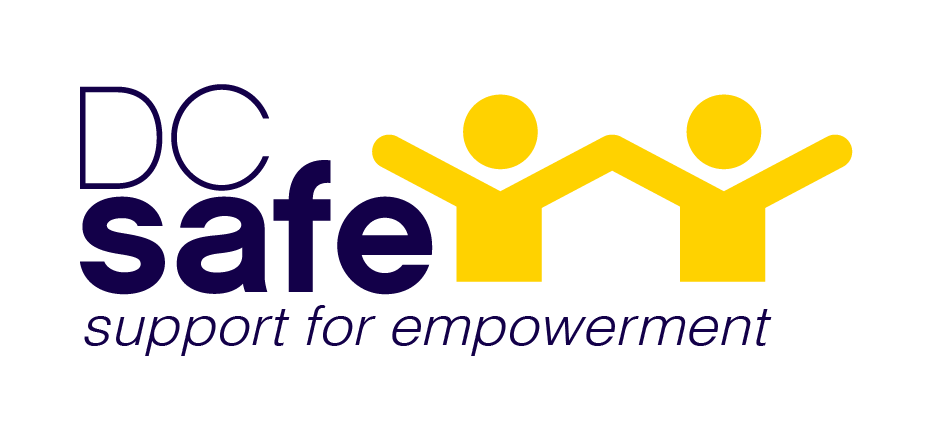Our name, DC SAFE, stands for Survivors and Advocates for Empowerment. There is a very good reason for this. Empowerment is at the core of what we do every day. We are committed to survivor-defined advocacy and understand that survivors are the experts of their own lives. Advocates serve to support survivors’ decisions, not dictate them. We believe the advocate/survivor relationship is a partnership that is successful with mutual trust and respect. Advocacy is a process and at the end, we want survivors to feel that they not only have the agency, but also the support and resources they need to pursue an independent future.
In honor of Domestic Violence Awareness Month, we checked in with some of our advocates and asked them to share what ‘empowerment’ means to them.
Nicole, POWER Program Specialist:
“Empowerment to me means that you are a strong role model to someone else by providing them the tools they need to succeed, while simultaneously showing them how to succeed. Having the tools does not guarantee success if one does not know what to do with them! But having a role model or mentor to be a guide in how to use those tools start help start someone on the path to success. One of the most important parts of empowerment is recognizing when the person knows the path they’re on and no longer needs that guide, and letting independence foster their own self-empowerment.”
Chandler, Lethality Assessment Project Advocate:
“I've come to understand empowerment as a constant ebb and flow, rather than a state of being or a destination. We don't exist in a world where people are "empowered" or not empowered, but in one where we are constantly empowering ourselves, or those around us, to recognize our own strengths, achievements, and goals. Empowering someone is to help them recognize the power that they already have within themselves. It's offering support, it's suspending judgement, and it's accepting that sometimes it takes some trials and errors in order to reach our goals. And finally it's realizing that as much as we feel empowered by others, we are also empowered by ourselves.”
Alexandria, Supportive Advocacy Services (SAS) Advocate:
“Empowerment for me means helping individuals realize the power, authority, and autonomy they have over their lives. As advocates, it is our duty to empower our clients.”
Joanna, SAS Advocate:
“What empowerment means to me is lifting someone up to their maximum level of capacity. It is communicating with someone who is a co-worker, client, friend, or stranger and telling them that they are stronger than they know. They can accomplish anything they want, through hard work and determination. Empowerment means giving someone a positive outlook on whatever turmoil they are going through. It is being there for someone who is in need of guidance and you always being there for them.”



